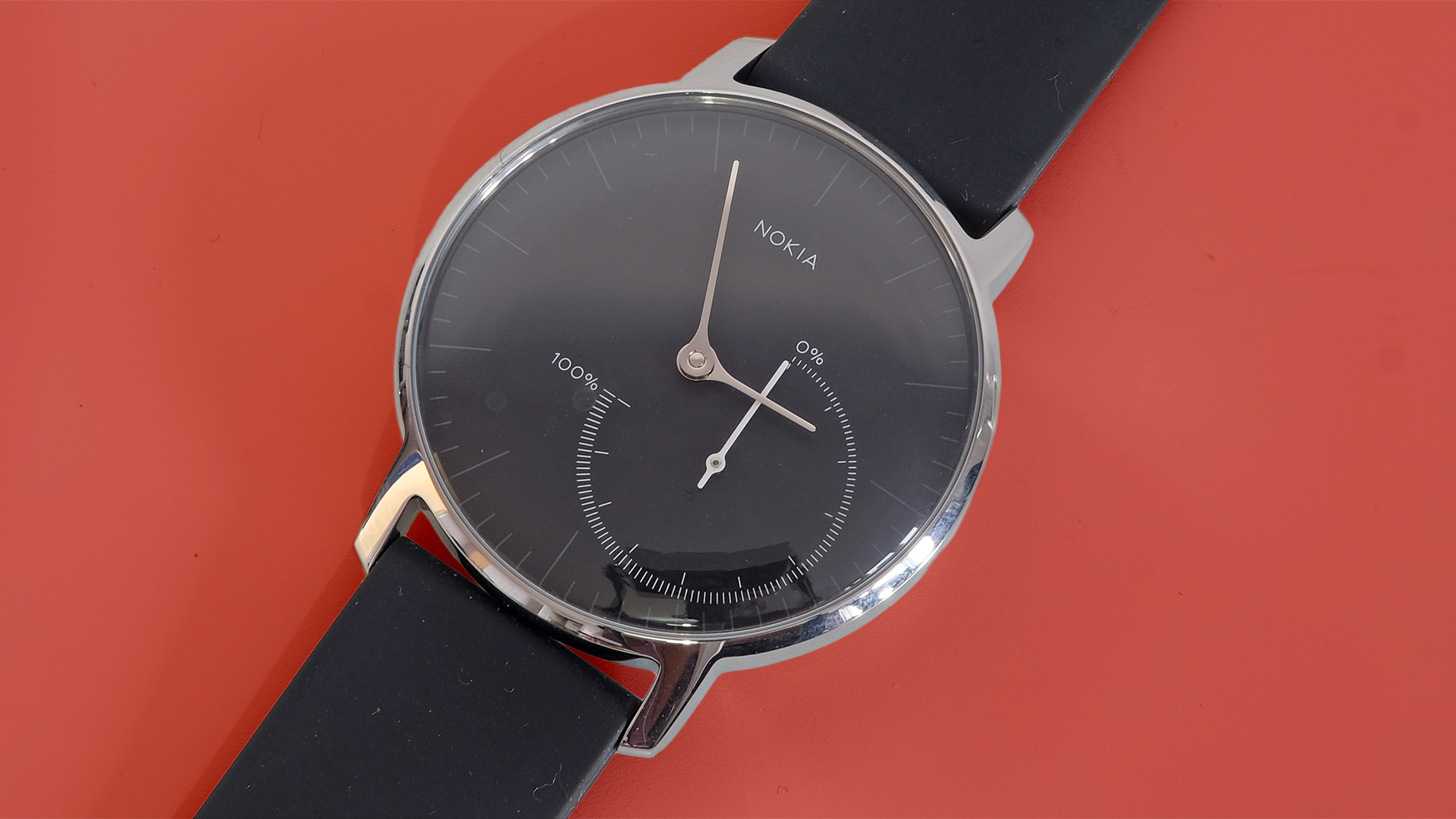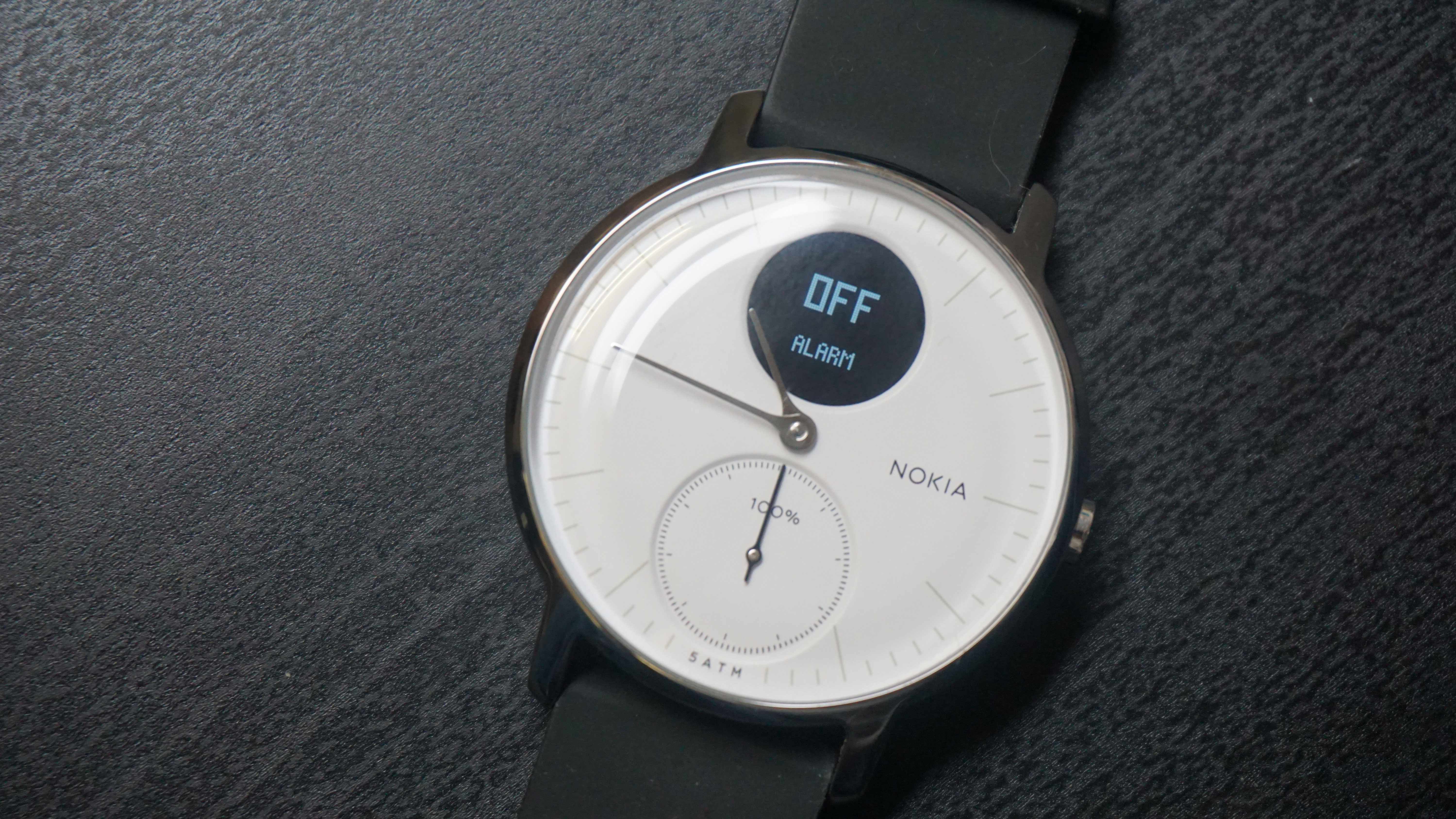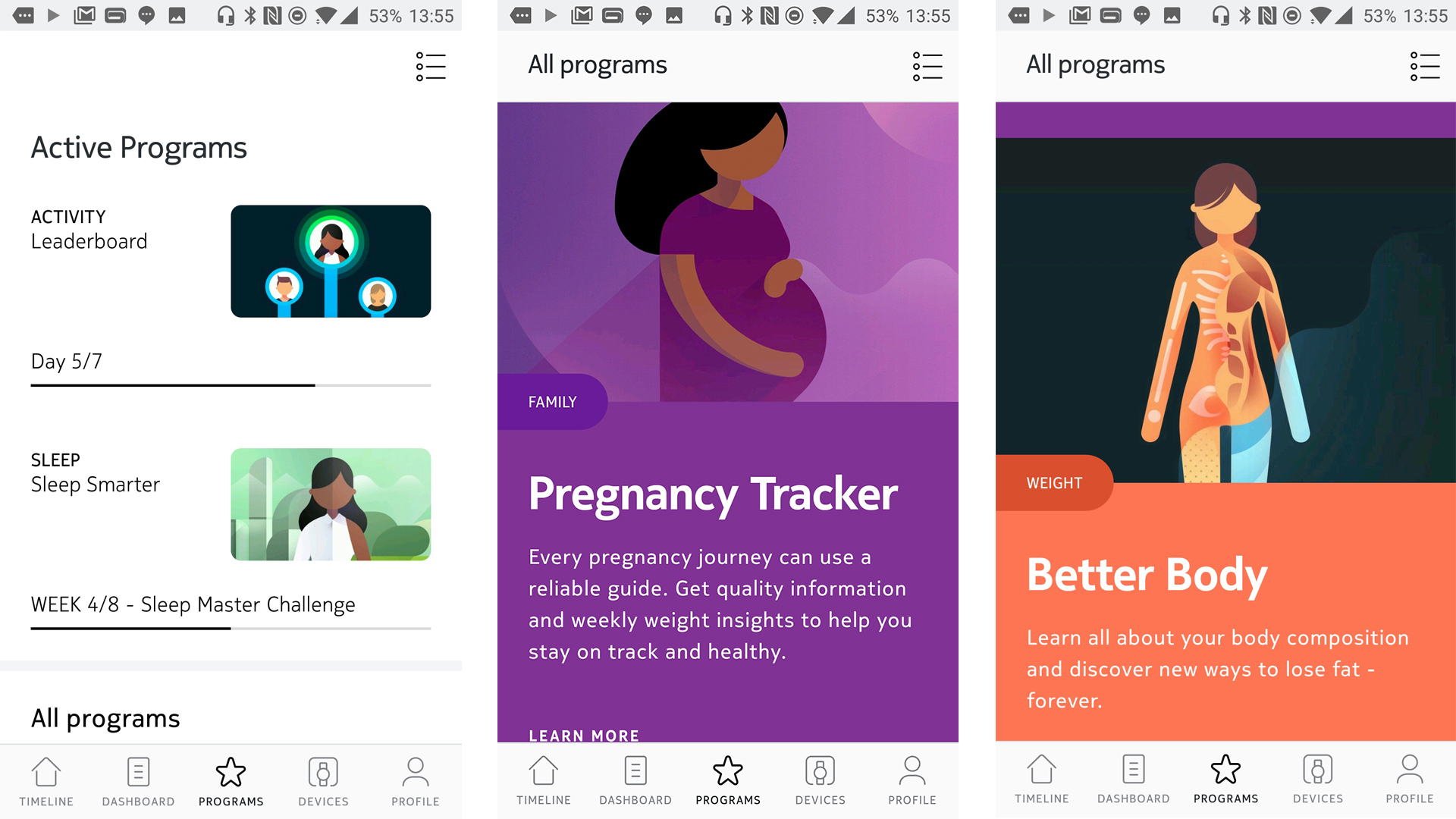Nokia won't rush to release new fitness trackers – it’s busy saving your life
It's about more than smart scales and activity trackers

It looks like we won’t see any new fitness trackers or revolutionary products from Nokia any time soon.
“Honestly, I feel like we’ve rounded out our portfolio”, said Head of Nokia Digital Health Rob Le Bras-Brown, speaking exclusively to TechRadar for our Fitness Week. “Now it’s about adding incremental utility.
“Our focus is on preventing chronic illness, particularly heart-related diseases and working with our medical experts so you’ve got data about your weight, heart and activity so you can start to really affect the trajectory of those conditions.”
Nokia is a relatively new company to the world of fitness tracking. You likely remember the company for producing mobile phones such as the Nokia 3310 and N95, but the Nokia phone brand has been reborn with new handsets like the Nokia 8 from third-party manufacturer HMD Global.
The original Nokia now focuses on health and well-being products, a lot of which are retooled and rebranded elements of products made by Withings, which Nokia bought in 2016. Products such as the Nokia Steel HR and Nokia Go were originally released with the Withings name on, but are now handled under the digital health division of Nokia.
If anything, we’re doubling down on what Withings was already doing.
Rob Le Bras-Brown, Head of Nokia Health
“One of the reasons Nokia acquired Withings is because we believe in its philosophy. We want to make products that work seamlessly in people’s lives”, said Le Bras-Brown.
“It’s really about inspiring the individual to take control of their own health and their wellbeing, but there’s a wider goal to help human wellness as a population. If anything, we’re doubling down on what Withings was already doing.”
Get daily insight, inspiration and deals in your inbox
Sign up for breaking news, reviews, opinion, top tech deals, and more.
Nokia is aiming to tackle the problems of chronic illness, but it also understands that persuading people that their health is important, and changing habits, can be difficult.
The company has had to think about how it can make products that are as frictionless with customer’s day-to-day routine as possible.
“With our activity trackers, we focus on things such as battery life and making them beautiful so people don’t have to take them off,“ added Le Bras-Brown.
“Our activity trackers (specifically the Nokia Steel or Steel HR) don’t look like a USB disk on your wrist. Instead it looks like a beautiful piece of jewelry.”

That’s not necessarily true of the Nokia Go, the cheapest product from the company, which uses an E Ink screen and has a plastic design – although it does offer great battery life of six months, so you don’t need to recharge it often.
It’s not just fitness trackers that Nokia offers though. “We want to have a broad ecosystem of products,“ said Le Bras-Brown. “What we offer – that many of our competitors do not – is four key areas. We have activity tracking, weight measurement (including body composition), heart monitoring and sleep.”
If you own more than one Nokia device, your stats from all of them will appear within the Nokia Health Mate app, making it easy to see all your key info at a glance.
One of the problems with having a connected fitness ecosystem is that different brands use different apps. For example, if you own a Fitbit Aria 2 set of weighing scales as well as a Samsung Gear Fit 2 Pro fitness tracker, it’ll be a struggle to combine all of this data onto the one platform.
Le Bras-Brown is proud of how Nokia offers everything within one phone app: “I think it’s important that we continue partnering with people such as MyFitnessPal and Apple.”
The company is clearly aware that it needs to offer integration with other platforms in the future.
Asleep on the job
CES 2018 also saw the company enter a new market with its first sleep tracker. This is a pad you insert under your mattress to give you stats on how often you’ve woken up, how deep your sleep is and more.
We don’t currently know how much the pad will cost, but it’ll connect to both Bluetooth and Wi-Fi to give you what the company believes will be a more accurate and insightful look at your night’s sleep than a regular activity tracker on your wrist.
“Every day you then get a sleep score that is based on our algorithm, and I’m blown away by how we can identify heart rate, respiration rate and then presence – how much you move – and turn it into a single sleep score,” said Le Bras-Brown.
“We give you a number out of 100 to work out how good your sleep was, and then we give you ways to improve that.”
It’s another example of Nokia making a frictionless fitness experience. “You set it up once, slide it under the mattress and connect it to Bluetooth and Wi-Fi,“ Le Bras-Brown added. “You can then forget about it.”

Although Nokia believes it has a full portfolio of products, that doesn’t mean the company doesn’t want to improve its existing ecosystem.
Le Bras-Brown told us: “There are certain things I want to do with the Steel HR product going forward that I’m not at liberty to share now, but, for example, I want to add incremental data that will give you further insight.
“I think we get better every month in reading data, interpreting it and then delivering it as a form of insight. I think the goal is to deliver that info in a more bespoke way to an individual.”
Nokia also wants to make your fitness stats and improvement a much more personalized experience.
“I would love one day for Nokia to have a product that the first day you use Health Mate it asks you what are your goals and how can I help you?“ added Le Bras-Brown.

“Our app is called Mate… it should be your mate. You could say, ‘I want to lose 5 pounds, get a six-pack and add 10 years to my life’. Each time you go back to it, I want it to get more sticky and more bespoke to you.
“My aspiration is to get to a place where it doesn’t feel like you’re interacting with a machine. I want it to be like you’re talking with a mate who has your back. It knows my needs, my weaknesses and it helps me navigate those."
That’s not something Nokia is going to be able to offer in the immediate future, but it may one day become a possibility.
“I think with machine learning and some of the AI capabilities Nokia has, that’s not an unreasonable place for us to get to,” said Le Bras-Brown.
Watch our beginner's guide to fitness tech video below:
James is the Editor-in-Chief at Android Police. Previously, he was Senior Phones Editor for TechRadar, and he has covered smartphones and the mobile space for the best part of a decade bringing you news on all the big announcements from top manufacturers making mobile phones and other portable gadgets. James is often testing out and reviewing the latest and greatest mobile phones, smartwatches, tablets, virtual reality headsets, fitness trackers and more. He once fell over.
